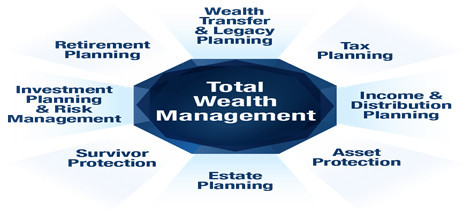What Happens If You Die Without A Will?

If you die without a Will, the law says that you have died “intestate,” which means that you left no instructions as to how your property is to be divided and distributed. In these circumstances, this article will show you how your property will be distributed to your surviving relatives or your wife and children. Even if you want your property divided according to provincial law, you should still have a Will because it will reduce delays and expenses involved in wrapping up your affairs.
What is a Will?
A Will often called a “Living Trust,” is a legal document that dictates how your property is to be divided after your death. Some people choose to make a Will for their own benefit while others may use their Will to transfer property to their spouse, children, or a charity. It is also a common practice to name someone to act on your behalf as an “Administrator of the Estate.” This person is responsible for the proper execution of your Will. It is important to specify in the Will who will be appointed as the Administrator because this person will be the only person authorized to distribute your property according to provincial law and estate laws in the province or territory in which you lived.
Why do people make Wills?
People sometimes make Wills for the following reasons: They want to be sure that they and their family members are legally protected from possible lawsuits from other family members (or even themselves) that could arise from any potential estate disagreements. They might have young children who are minors, or they may have a spouse or child who is incapacitated, mentally disabled, or who is ill and might die within a short period of time. They might have parents or other adult relatives who are facing financial problems, or they might be senior citizens. They might have some reason or other that might have to be considered by the courts regarding their property.
Problems that arise when someone dies without a Will
If someone dies without a Will, the law doesn’t have much say about how the property should be divided. While there are provincial laws that spell out the types of property that should be distributed according to provincial law, the law doesn’t really spell out how it should be done. It does say that the only factor in deciding how the property should be distributed is whether the deceased person intended it to be distributed according to provincial law or on the understanding of a personal representative. So here are some of the questions that might arise if someone dies without a Will: Does the property have to be divided in the order in which the deceased owned it? The answer to this question depends on the date of death.
What Exactly Happens If I Die Without A Will?
Here are some key points that you need to know about how your property will be distributed if you die without a Will: Unless you have a surviving spouse or dependent children, your property will be divided equally among your four remaining living children and your surviving spouse or dependent children. Your surviving spouse or dependent children can’t have any other children before your death, but they can have other spouses, boyfriends, or girlfriends after you die. This is a result of the “step-up” provision, which allows surviving spouses to keep certain property that they had earlier inherited from you. You can inherit a piece of property outright, and it will be distributed equally among your heirs, without a Will.
This post contains affiliate links. Please please read my Disclaimer for more information
What Exactly Happens If I Die Without A Will?
Here are some key points that you need to know about how your property will be distributed if you die without a Will: Unless you have a surviving spouse or dependent children, your property will be divided equally among your four remaining living children and your surviving spouse or dependent children. Your surviving spouse or dependent children can’t have any other children before your death, but they can have other spouses, boyfriends, or girlfriends after you die. This is a result of the “step-up” provision, which allows surviving spouses to keep certain property that they had earlier inherited from you. You can inherit a piece of property outright, and it will be distributed equally among your heirs, without a Will.
Who Will Be In Charge Of My Estate?
The law allows each province or territory to choose to handle the distribution of your property. Generally, your province or territory will make a recommendation of who will be responsible for your estate if you die without a Will. If you live in a province that is not listed, you should still make a Will. Who Is On My Estate? Each province has a division of wills that is responsible for managing the probate of your estate. In Ontario, the government’s General Division of Wills handles these matters. By registering with the General Division, you appoint them to take care of your estate upon your death. These persons then form the General Division’s executor and administrator. These persons are in charge of organizing your estate and your distribution of your estate.
Who Will Take Care Of My Children?
For many of us, including parents, children are the most significant, cherished family members. It would be shocking if one of these loving children lost everything. In order to address this possibility, you must have a Will. If you don’t have a Will, your property will be divided according to the following provisions: If your spouse dies first, then his/her estate, which includes your children, will be taken care of first, even if you have separate wills. If you have separate wills and your spouse died first, then his/her children will be taken care of first. If you have no children, then the property will go to a designated charity. If you have a minor child, then the child will be left to your spouse, and the minor child will be taken care of first.
Who Will Get My Estate?
There are several ways your family can receive your property. The surviving spouse will inherit the entire estate, including your real estate, personal effects, and remaining money. Your spouse will have the benefit of your remaining income tax-free until you are buried or cremated. You can tell the decedent to set up a living trust so that the spouse will be named as the beneficiary in your Will. Even if you have children who are no surviving children, they can be named as beneficiaries under a living trust because children are considered legal persons for the purposes of intestate succession. Even if you don’t have any children who are now living, you still may want to have your estate divided equally among your children after you die.
What happens if you die intestate?
In the case of intestate deaths, a judge determines how the estate is distributed. Typically, a family court judge will appoint an executor, a person who is appointed to look after the will of a person who died without a Will. An executor is usually a family member or a close friend who will carry out the terms of the will. An executor is often paid to do his or her job, which is usually quite complicated because executors are tasked with doing tasks that most of us would rather not do. The executor will investigate the contents of your estate. They will look into bank accounts, investments, and real estate, as well as a credit union and insurance accounts. An executor can pay your bills and settle your estate without having to go to court.
How to make a Last Will and Testament
If you have not made a Will, you will have to create one in the circumstances described below. Making a Will takes time, and making one in the wrong way can cost you more than it should. The more time you spend on writing it, the better off you are. You can write it in a few hours or even a few days if you work hard, but do not make the mistake of taking a few weeks or months to do it, as that will add more delays to the process. If you do not have a Will, your property will be distributed according to the law of intestacy. This is the law that requires that your property be divided equally among your heirs.

Conclusion
Get a Will done or change your Will to reflect the current law on your property. Not only should you have a Will, but it is very important that you read through the information that this article gives you and be prepared for the eventuality that you might die without one. No one wants to die in a legal limbo; it may be one of the greatest fears of all.
“If you have any feedback about what happens if you die without a will that you have tried out or any questions about the ones that I have recommended, please leave your comments below!”
NB: The purpose of this website is to provide a general understanding of personal finance, basic financial concepts, and information. It’s not intended to advise on tax, insurance, investment, or any product and service. Since each of us has our own unique situation, you should have all the appropriate information to understand and make the right decision to fit with your needs and your financial goals. I hope that you will succeed in building your financial future.


















